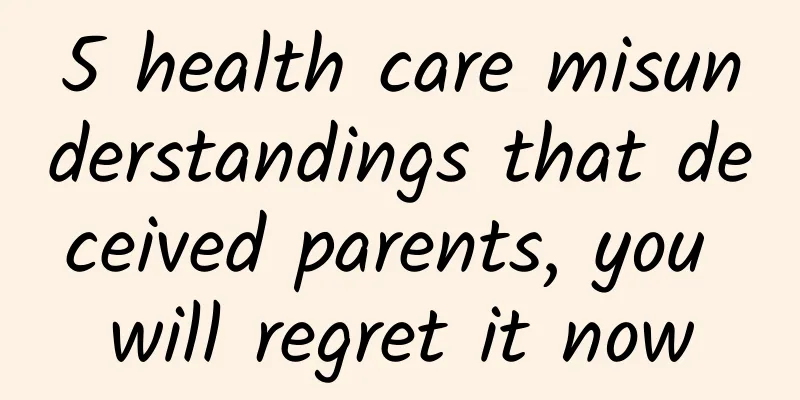What is the life of astronauts in the "Tiangong"? You will be more respectful after understanding it

|
On the morning of June 5, three astronauts, led by Chen Dong as commander, Liu Yang and Cai Xu as members, arrived at China's Tiangong Space Station (hereinafter referred to as "Tiangong") on the Shenzhou 14 spacecraft. Prior to this, the three astronauts of Shenzhou 13 also lived in "Tiangong" for 6 months and just returned home. The Shenzhou 14 spacecraft was launched from the Jiuquan Satellite Launch Center at 10:44 a.m. on a Long March 2F Yao 14 carrier rocket. The separation of the spacecraft and the rocket was completed 577 seconds later. At 17:42 p.m., the spacecraft automatically docked with the Tianhe core module of the space station. At 20:50 p.m., the three astronauts entered the Tianhe core module at once. At this point, the three astronauts began their six-month "fairy-like" life in the "Tiangong". Many people may think that this "fairy-like" life is very comfortable, but in fact it is full of hardships and inconveniences, and it can also cause damage to the body. Next, let's learn about the astronauts' life in the "Tiangong". "Villa" in "Heavenly Palace"/ The "Heavenly Palace" is certainly not the luxurious palace of the Jade Emperor and the Queen Mother. In mythology, although the gods often fight and kill, their lives are leisurely and beautiful. So, what is the living environment of our astronauts? The core module of Tianhe is 16.6 meters long, 4.2 meters in diameter at its largest point, and weighs 22.5 tons. It looks like a large room, but it is filled with equipment, which has been squeezed out of 50 cubic meters of habitable space through compression and careful arrangement. How big is a 50 cubic meter space? It is a space with an average length, width and height of 3.68 meters, which is a small room on Earth. The three astronauts squeezed into such a narrow space during their 6-month mission. This space is not a square room, but a long corridor. In the narrow part, two people have to turn sideways to pass through. According to the information, the living conditions in Tiangong are much more luxurious than those in the International Space Station, and the size of the Tianhe core module is larger than any module in the International Space Station. Some people say that the International Space Station is like a waste recycling station, while our Tiangong is more like an Apple store, clean and bright. The astronaut activity space in "Tiangong" is divided into a work area, a sanitary area, a dining area, a medical monitoring and medical insurance area, and an exercise area. Each astronaut is also equipped with an independent sleeping area and toilet. There are also microwave ovens, refrigerators, water dispensers, folding tables, etc. for daily use. It can be said that it has everything you need. Astronauts usually get up, wash, eat, work and rest according to the ground schedule. The "bedroom" in the Tianhe core module of the Tiangong aerospace center is a refrigerator-sized cabinet space. There are three of them, so the three astronauts have their own independent "bedrooms". However, they cannot cover themselves with quilts when sleeping in this "bedroom". There is only a fixed sleeping bag, and they can just crawl into it when it is time to go to bed. In fact, in a state of weightlessness, it doesn't matter whether the "bedroom" is horizontal or vertical, the feeling is the same, because whether lying down or standing, people are floating, there is no feeling at all, and they must be fixed when sleeping, otherwise they will float away. The astronauts of Shenzhou 13 and 14 spent their 6-month mission in such a "three-bedroom and one-bathroom" "Tiangong Villa", which was hard and happy. Food in the “Heavenly Palace”/ Eating and drinking are the most basic requirements for survival, and solving the problem of eating and drinking for astronauts in the "sky" is a top priority. After decades of space experience, scientific and technological personnel have no problem solving the food, drink and nutrition problems of astronauts. However, due to the weightlessness in the "sky" (actually microgravity, for the sake of convenience, it will be referred to as weightlessness in the following), food, drinks and eating methods are not as simple as on the ground. In order to solve the problem of eating and drinking in weightlessness, space food must be specially processed and made into the form of "compressed bricks" or "toothpaste tubes", which will return to their original shape when added with a certain amount of water when eaten. When astronauts eat space food, they usually open a small hole in the composite plastic film containing the food, insert a fork or chopsticks into the small hole to fix the food before putting it into their mouths. In order to prevent food crumbs from floating everywhere, these foods are generally made to be easy to eat and do not fall off. When drinking water or beverages, soup, jam, etc., they usually squeeze them directly into their mouths from a plastic bag or toothpaste-like tube. Astronauts' food is generally divided into six categories, including natural food, ready-to-eat food, irradiated food, heated food, rehydrated food, beverages, etc. The space station is also equipped with a special microwave oven to heat food, so you can still eat hot and delicious food in the "Tiangong", but it is not as casual as on the ground. When we are at home, we can enjoy a feast and a few drinks, and be carefree and relaxed; astronauts can only carefully seal the food in their mouths, otherwise it will float everywhere. However, with the continuous development of the space industry, the food prepared by ground support for astronauts is becoming more and more refined and delicious, taking into account both nutrition and taste, and trying to make astronauts eat better, more comfortable and more convenient. For example, my country's Shenzhou XII and Shenzhou XIII missions carried 120 and 127 kinds of food respectively, and Shenzhou XIV is said to have even more, with 32 kinds of vegetables alone. The menu is also configured according to the taste preferences of each astronaut, with common specialties such as braised pork, braised fish, scrambled eggs, pork chops, fish-flavored pork shreds, Kung Pao chicken, pigeon meat, bread, and desserts. Nothing is impossible. Bathroom of "Tiangong"/ Eating, drinking, defecating and urinating are the basic balance requirements of human life. Humans have lived on Earth for hundreds of thousands of years, with thousands of years of civilization and hundreds of years of science, and have lived a casual and comfortable life. But in the "Heavenly Palace", washing and going to the toilet are not as convenient as at home. Special facilities and methods are required, and it is "very difficult" to solve the problem. Let's talk about washing first. Male astronauts need to shave, which looks similar to the electric razors used on Earth, but is actually a little different. The electric razors used on the space station have built-in vacuum devices, and the shaved beard residue will be sucked into it to prevent it from floating in space. The method of haircut is similar. The toothpaste for brushing teeth is specially made and edible, and there is no foam. The astronauts apply the toothpaste on their teeth, and then eat it after brushing their teeth. But in the video, Wang Yaping seems to wipe it on a towel after brushing her teeth, probably because she doesn't want to eat it. She uses wet wipes to wash her face, and puts on a special shower cap on her head after washing her hair, rubs it for a while and then changes it. She is done after three changes. Bathing is more troublesome. In the early days, in order to avoid using less water, astronauts mainly bathed with two sponges, one for washing and one for rinsing, and then dried with a towel. After the construction of the space station, the bathing conditions were improved. Astronauts can enter a foldable cylindrical bathtub, fix their feet at the bottom, pull the foldable bathtub up to the top and connect it, then apply shower gel all over the body, rinse with 2.8 liters of pressurized water, and the negative pressure device in the bathtub will suck out the soapy water. Let's talk about the excretion problem. In the past, astronauts used diapers, which are used by babies today, to solve the excretion problem during short-term space missions. This invention originally came from aerospace. Later, when the space mission lasted longer, it was necessary to solve the problem of large stools, so they made a special bag to put on the buttocks. After excreting, they had to knead the bag with their hands, roll it into the smallest volume, and bring it back to Earth for inspection and processing. It is reported that the astronauts of the Apollo moon landing mission had a hard time using that bag to relieve themselves in weightless conditions, and it took five or six times as long as on Earth, and they had to knead it for a while before folding it. Especially when defecating, the bag mouth must be aligned tightly, otherwise it would float out and fill the spacecraft, which would be a disgusting and terrifying scene. Later, with the establishment of the space station, aerospace engineers designed and equipped a special toilet for astronauts. This toilet contains a lot of black technology, and it is said that a set costs tens of millions of dollars. Simply put, the key to this toilet is that it has negative pressure, which can suck excrement into a special device for treatment. In order to maximize the use of water resources, the excreted urine must be recycled and reprocessed into drinkable water. In fact, all the water and urine used for washing in the space station must be collected and recycled for reuse. The water in the space station is so precious that it costs tens of thousands of dollars to transport one kilogram of items (including water) to the space station. Specifically, the solution to the small problem is to use a cup cover with a negative pressure suction hose, which can be buckled on the male and female astronauts' private parts, so they can relax and defecate as much as they want; the large problem is a bit like our home toilet, but the opening is smaller. When using it, you must first fix your thighs and feet to prevent them from floating up. Then align the buttocks with the opening, and use the negative pressure system to suck the excrement into a special container. After drying, it is sealed and packaged and stored in a special container, which will be carried into the atmosphere and burned along with other waste in the future. Whether it is large or small, it must be kept close to your body, otherwise the excrement will float in the air and it will be difficult to deal with. The impact of life in the "Heavenly Palace" on the body/ In fact, if we pay a little attention, we can see that the astronauts' appearance will change to a certain extent after leaving the Tiangong. Their shoulders will shrug, their faces will swell, and their hair will become "frizzy". This is the phenomenon caused by weightlessness. The effects of weightlessness on the human body are mainly manifested in the following aspects: The body will stretch and become taller. This is because on Earth, gravity pulls the body down, and the bones grow to adapt to the Earth's gravity. In the weightless state of the space station, there is no gravity pulling, every part of the body relaxes, the bones also relax and stretch, and the body will become taller. When we see astronauts' shoulders hunched, it is because without the downward pull of the Earth's gravity, the shoulder blades and muscles naturally relax, making them look hunched. After a period of time, they adapt to the weightlessness. When they return to Earth, they are squeezed by gravity, and their back and neck joints will ache, requiring long-term recuperation to recover. In addition, the probability of suffering from lumbar disc herniation is 4 times higher than that of normal people on Earth. Body fluids will be redistributed. Under the earth's gravity, human body fluids are pulled downwards, and the body adapts to the earth's gravity in distributing body fluids. For example, if blood is to flow to the brain, it must be pressurized by the beating of the heart to balance the body's demand for body fluids. In a state of weightlessness, this balance is broken. Because of weightlessness, body fluids will not automatically sink, and the digestive system and excretion function of the human body will be seriously affected, making it particularly difficult to defecate. Especially for women, it is difficult for menstrual blood to flow out during the menstrual period. Some female astronauts will take estrogen contraceptives to try to avoid menstruation during missions. When it cannot be avoided, they use tampons or sanitary napkins to solve the problem, but after all, it adds a lot of trouble compared to the ground. In a state of weightlessness, the heart still beats the same as on Earth, so the head gets more fluid, and the fluid in the legs and feet naturally decreases. The body fluid is redistributed throughout the body, and the previous balance is broken. The increase in fluid in the head will lead to symptoms such as increased intracranial pressure and increased intraocular pressure. 60% of astronauts will experience decreased vision. This is also the reason why astronauts' faces become larger and swollen in the space station. In order to achieve a new balance, the brain will issue instructions to the body to readjust, resulting in a gradual reduction of about 20% of body fluids. After returning to Earth, gravity pulls the body fluids down again. Before the reduced body fluids are restored, the amount of body fluids in the head decreases, causing ischemia and hypoxia. Therefore, the astronauts who have just returned cannot stand steadily and must be carried by others. Muscles will atrophy. Due to weightlessness, the muscles that were tense on the ground to fight gravity are relaxed. In the space station, whether standing or lying, skeletal muscles no longer need to be stretched. Over time, these muscles lose their stretching function and gradually atrophy. Research data shows that astronauts will lose about 20% of their muscles after about 10 days in space. In order to cope with this situation, astronauts must exercise regularly and try to keep their muscles in a certain state of tension. But no matter what they do, they cannot completely avoid muscle atrophy. Osteoporosis. Just like muscle loss, in the weightless state of space, bones do not have the pressure and stimulation of muscle contraction, nor do they need to fight gravity, so bone tissue loses its power to grow and bone loss occurs, mainly the loss of calcium and other elements. According to research data, astronauts lose 1.5% of their bone tissue every month during their in-orbit flight, which is equivalent to the annual loss of elderly people on Earth, especially the pelvis and lower spine, where the loss is the most serious. Calcium and other minerals lost from the bones are not completely excreted from the body, but remain in the blood, causing the blood calcium concentration to increase and be reabsorbed by the body, which greatly increases the risk of soft tissue calcification and makes it more likely to develop diseases such as kidney stones. These changes can be prevented through exercise and diet, but they cannot be completely eliminated. Long-term loss of bone material and reduced bone density will lead to osteoporosis and fragility. Therefore, you must be careful to prevent fractures when returning to Earth, which is why astronauts need to be carried by others when they return to Earth. The space environment can also cause human immune dysfunction/ In the strong radiation environment of space, astronauts are exposed to 0.7 to 1 millisievert of radiation every day, which is equivalent to the radiation received on the surface for four months (some data say it is equivalent to one year). The Shenzhou 13 and 14 missions were in orbit for six months respectively, and the radiation received by the astronauts was equivalent to the total amount on the earth's surface in 60 years. In addition to being exposed to radiation, the astronauts' living habits and biological clocks have completely changed. They orbit the Earth once every 90 minutes and experience 16 sunrises and sunsets every day. They have to swallow toothpaste when brushing their teeth and tie themselves up when sleeping, going to the toilet, and taking a shower. They feel weightless and light all the time, even when they sleep. They don't have the comfortable, relaxed, and grounded feeling of lying in bed at home. This has a great impact on their physiology and psychology, resulting in insufficient melatonin secretion, endocrine disorders, and immune system disorders. Therefore, after returning to Earth, astronauts must undergo 14 days of medical isolation to prevent low immunity and the invasion of bacteria and viruses from Earth, causing them to fall seriously ill as soon as they return home. Moreover, when they return home, they will be very uncomfortable with life under the Earth's gravity as opposed to in the "Heavenly Palace" because picking up things or doing anything is different. They will often break things and need a long time of recuperation and adaptation before they can return to normal. Sometimes, we only see the luck and glamour of astronauts, but in fact, they are more responsible for the future and hope of mankind, sacrificing and dedicating themselves to it, and facing all kinds of unknown risks far away from home at any time. Therefore, we should respect them even more. If you have any opinions on this, please feel free to discuss. Thank you for reading. The copyright of Space-Time Communication is original. Please do not infringe or plagiarize. Thank you for your understanding and cooperation. |
Recommend
Expert Tips | Factors that influence inclusion in Xiaohongshu!
Why can't I search for the notes I posted? Wh...
What efforts have scientists made to prevent your poop from sticking to the toilet?
Produced by: Science Popularization China Author:...
Ultra-portable display Slidenjoy trial notebook external perfect match
For laptop users, multi-screen configuration is b...
iQIYI Box Revealed to Have Black and Green Cube Design, Saying Goodbye to Remote Control
[September 10 News] On the afternoon of September...
With a continuous monthly growth of 50%+, how can brand marketing promotion go from 0 to 1?
The process of brand creation can be mainly divid...
Did the moon fall really happen?
There is a disaster movie called "Moonfall&q...
Red alert, severe flood! The highest water level ever measured!
Starting from the early morning of June 21, Yingd...
23 tricks to grab user fans, how many of them have you fallen into?
"How can I get others to pay attention to my...
50 essential proposal writing skills for planners in 2020
During my time as Party B, I wrote hundreds of pr...
Bigger than a black hole is the geography teacher's imagination
Loading long image... Source: National Geographic...
Musk announced plans to build factories on all continents to meet market demand
Recently, Tesla CEO Musk said in an interview tha...
Juyongguan: How did ancient China “play” with light-speed communication and cryptography
Juyongguan is known as the most powerful pass in ...
Do you always charge your battery to 100%? Stop it now.
In today's life, mobile phones are not only a...
Improve your memory in just one week! Ketogenic diet has similar effects to fasting?
Wang Xin Recently, researchers from the Universit...
How can you measure the degree of myopia by just writing a word? Why do eyes become myopic?
Are you nearsighted? Do you know how nearsighted ...









